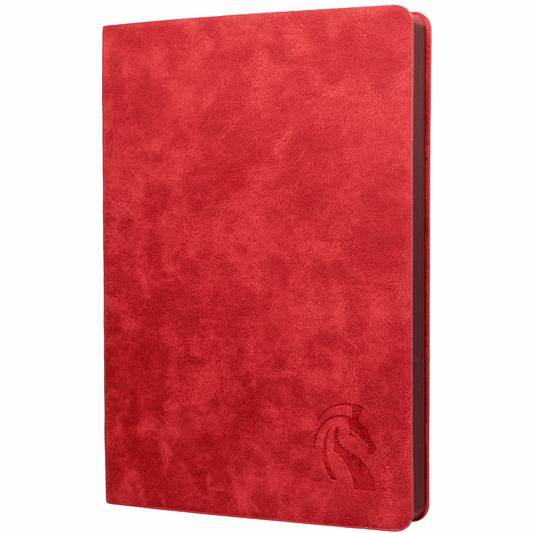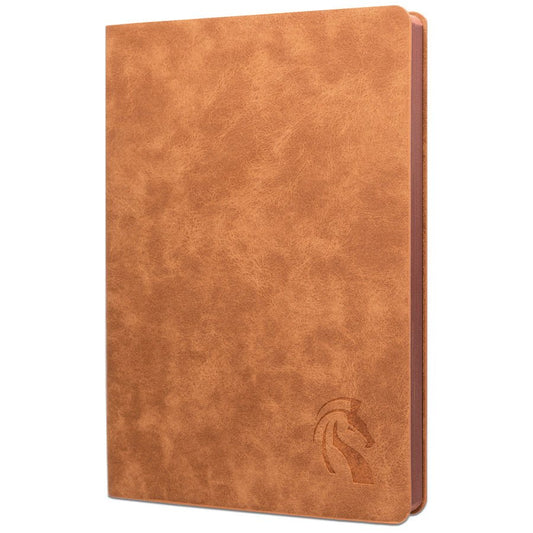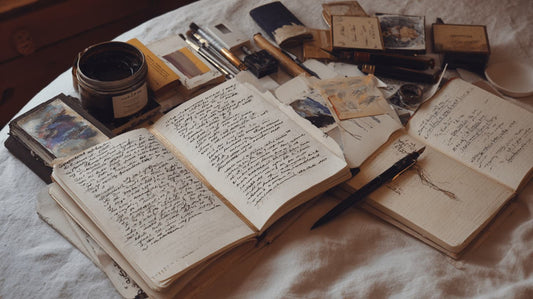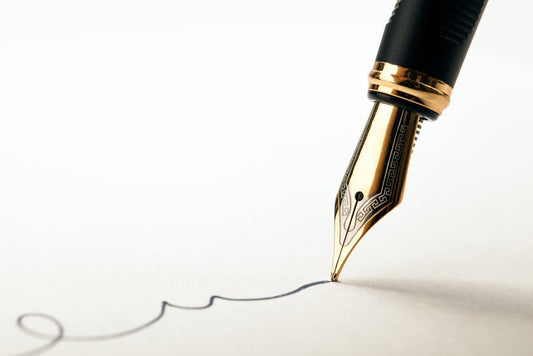
Choose Nibs Made of Solid Gold.
Solid gold fountain pen nibs are generally more dependable than their cheaper steel counterparts, which can easily bend or corrode and are difficult or impossible to repair. In contrast, solid gold fountain pen nibs are generally long-lasting and durable, and they can be used for the entirety of one's writing career. However, there are several fundamental procedures that you can take to ensure the longest possible life for your preferred solid gold nib.
How hard should you press with a fountain pen?
Put caps on your pens, or use pen pillows or racks, whatever you want.
Naturally, dropping a pen, especially while it is uncapped, presents the highest risk of nib breakage. This is especially true when the cap is removed. You should always keep your pens covered while they are not in use, and if you are using a clipless pen like the Nakaya Cigar-style pens, you should also think about using a pen cushion or rack so that your pen does not move about on its own and fall off the table. In most cases, we are able to fix gold nibs that have been broken as a result of falling; please see the sections devoted to our services and repairs for more information.
When you are writing, use a light touch.
The application of excessive pressure while writing is the second most significant factor that might damage a nib. The majority of fountain pens only need a little touch while writing, and pressing down too forcefully on them may cause the tines to expand and lead to other types of damage as well. It is not necessary to have a touch as light as a feather in order to operate a fountain pen; nonetheless, keeping in mind to apply less pressure when writing may help you avoid having to see the nib doctor.
Use Safe Inks
Use inks for your fountain pen that have been customarily formulated, such as the ones that we offer and suggest ourselves, and clean your pen on a regular basis, particularly if you are using colored or carbon inks. You should steer clear of non-conventional inks that have a propensity to leak, clog, or corrode. As a general rule, if there is a great deal of debate over whether or not a certain ink or brand is safe to use, you could be well-advised to go with a more secure option.
Employ Papers and Notebooks of a High Quality.
When writing, you should avoid writing on abrasive surfaces and instead use high-quality papers and notebooks, such as those made by Clairefontaine and Rhodia, which do not leave fibers or residue that might clog a nib. Sandpaper, even the highest quality, should never be used on a nib since it will inevitably be too coarse and ruin the point. Do not use paper towels to blot a nib after it has been filled since the fibers in paper towels have the potential to harm the surface of a nib. Instead, use a soft cloth.

Warning to Those Who Assemble Their Own Items
Do not attempt nib repairs yourself if you are not already an experienced person in the field of fountain pen repair. If repairs are mishandled, they can not only damage a nib beyond the point of being able to be repaired, but they can also lead to problems with the feed and the gripping section as well. This is perhaps the most important piece of advice that we can provide. Check out the page on our website dedicated to Pen Maintenance for some easy activities that you can do on your own, but don't hesitate to get in touch with us if your troubles go beyond simple ink flow problems.

LeStallion PU Leather Journals
LeStallion Soft Cover PU Leather Journals inspires and excites you to write more, allow you to further grow and develop, so you may achieve your goals and dreams!
SHOP LESTALLION













